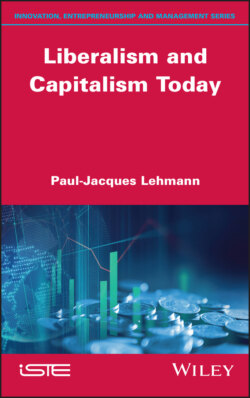Читать книгу Liberalism and Capitalism Today - Paul-Jacques Lehmann - Страница 26
1.4.3. Advantages and disadvantages of state bureaucracy
ОглавлениеWeber explains that modern state bureaucracy has several advantages, visible at different levels. It requires the gathering of many people, because it needs to assert its power and domination. The result is a division of labor and specialized knowledge: civil servants enjoy a technical superiority that makes them efficient, especially since control of their hierarchy reduces their ability to make mistakes.
Bureaucracy favors an economy formed through rational calculation, hitherto unknown, with law as a founding element that leads to a respect for procedures through precise, written and impersonal rules that individuals are obliged to respect on a daily basis. These are the norms adopted for the coverage of needs, civil servants being, henceforth, capable of evaluating in a quantified way the results of their actions, which will be seen as one of the conditions for the appearance of modern capitalism and its efficiency: they are thus used to making calculations and forecasts. The formalism they must follow replaces the previous situation based on affectivity and traditions.
Moreover, the formalization of law has repercussions both for economic and social life. For example, trade by contract has transformed commercial relations, which are now guaranteed by the state. At the same time, because of this contractualization, social relations are rationalized since bureaucratization creates a leveling of social conditions, as the civil servant fulfills their function in a formal and impersonal way. For example, today there is no longer any interference between economic activities and family activities: the law has clearly separated these two structures.
However, the advantages of bureaucracy should not obscure its drawbacks. De Tocqueville warned against administrative centralization, because it prevents the state from making the necessary reforms for fear of being blamed for them and chasing away those who have chosen to carry them out. He was therefore in favor of political decentralization by way of ensuring that decision-makers are close to citizens.
First, the anonymity of public actors leads to the impersonality of functions and prevents them from turning against a well-identified person in the event of a problem. Second, freedom can be impeded: individual life becomes more and more dependent on legal rules and the autonomy of individuals is compromised as a result. Finally, political freedom is reduced since the political influence of civil servants becomes more important than that of political leaders.
To many citizens, it therefore often appears that the administration is a separate instrument of domination, constituting a body of autonomous power, which is genuinely dominant. Only good politicians can prevent this from happening.
1 1 Thomas Hobbes (1588–1679) and John Locke (1632–1704).
2 2 Friedrich Hayek (1899–1992). Among his many books are: The Road to Serfdom, Routledge Press, London (1944); The Constitution of Liberty, Routledge and Kegan, London (1967); Studies in Philosophy, Politics and Economics, Routledge and Kegan, London (1967); and Law, Legislation and Liberty, Routledge and Kegan, London, three volumes (1973, 1976, 1979).
3 3 All of these regulatory issues are discussed in Chapter 4, section 4.2.
4 4 Translation from The Online Library of Liberty: https://oll.libertyfund.org/page/tocqueville-s-critique-of-socialism-1848.
